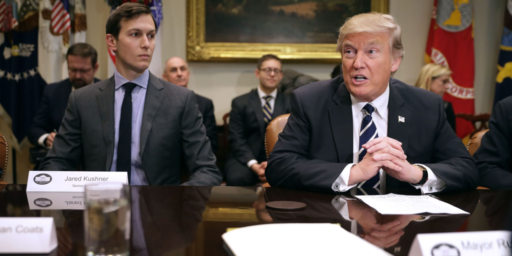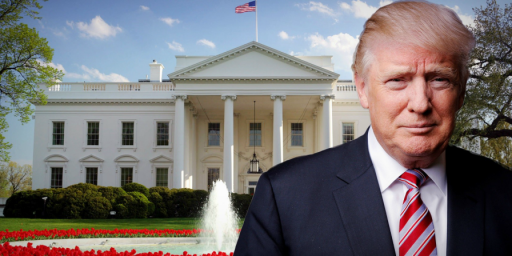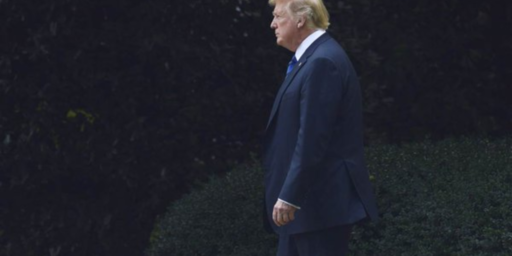UN Ambassador’s Chief of Staff Loses Clearance
A bizarre case of bureaucratic ineptitude.

A weird report from POLITICO (“State Department revokes security clearance for acting chief of staff to UN ambassador“):
A top aide to the U.S. envoy to the United Nations has stepped aside after her security clearance was revoked, according to two people familiar with the matter.
Jennifer Davis, the de facto chief of staff to Amb. Linda Thomas-Greenfield, is a career Foreign Service officer who has worked at the State Department for 18 years, with previous postings in Colombia, Mexico and Turkey.
The decision to revoke Davis’s clearance came after a three-year administrative investigation conducted by the State Department’s Bureau of Diplomatic Security, which conducts security background investigations to assess whether an individual should have access to classified information.
Davis “strongly contests the determination” and is “going to aggressively appeal this decision as quickly as possible,” a person close to her said.
The investigation concerned Davis’s tenure as consul general of the U.S. consulate in Istanbul, where she served from August 2016 to August 2019.
In that role, she had a conversation with a reporter, Amberin Zaman of the Middle Eastern-focused news outlet Al-Monitor, about the problem of local staff being hassled and detained by Turkish authorities, according to the person close to her.
Zaman reported at the time that the Turkish pressure campaign was likely to expedite U.S. government plans to use visa sanctions to block certain Turkish officials from visiting the U.S. and said that a list of such officials had been drafted, citing “sources close to the Donald Trump administration.”
Not only did she speak to Zaman with the knowledge and at the direction of her superior, according to the person close to Davis, the information she shared was “not at all sensitive” and was declassified soon after their discussion.
This is a POLITICO exclusive, so I’m thus far not finding further information elsewhere.
If Davis indeed spilled classified information to a reporter, it’s a serious matter. But if she did so with the permission of her superior, why isn’t that person in hot water as well? Unless they were the classifying authority, they wouldn’t have had permission to authorize disclosure. And, if they were, why didn’t they declassify it before authorizing the disclosure rather than after?
Beyond that, why was Davis allowed to continue to access classified information for three years while the investigation proceeded? If her trustworthiness was in question, the access should have been suspended while the investigation was underway. And why on earth did it take three years to investigate a simple matter of a conversation?
She’s a career professional, not an appointee, and presumably her reputation was otherwise outstanding to have been chosen for the chief of staff role. So the whole matter is simply bizarre.






In cases like this, my mind always goes to, “Who’d you piss off?
@OzarkHillbilly: Mine too. In other questions, if this investigation has been ongoing for three years, how did she get invited into the UN mission in the first place? Does her posting predate the investigation? If so, why not pull her then?
People keeping their access while something is investigated does rarely happen, but usually it’s minor in nature and resolved quickly. Three years for an investigation doesn’t sound correct to me, especially for a long-time career officer.
There’s more to this story than what’s being presented, that’s for sure.
The reporting isn’t helpful either. It brings up this interaction with a reporter, giving the reader the impression that the incident with the reporter was somehow relevant and crucial to this security clearance action but the article doesn’t actually draw any connection, which I think is questionable at best. If they know this incident with the reporter was relevant they ought to say so.